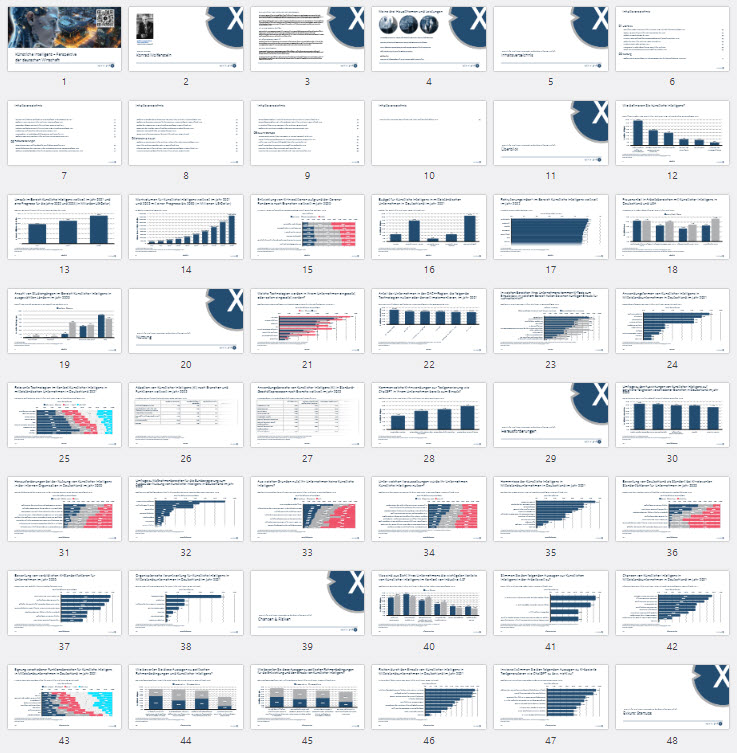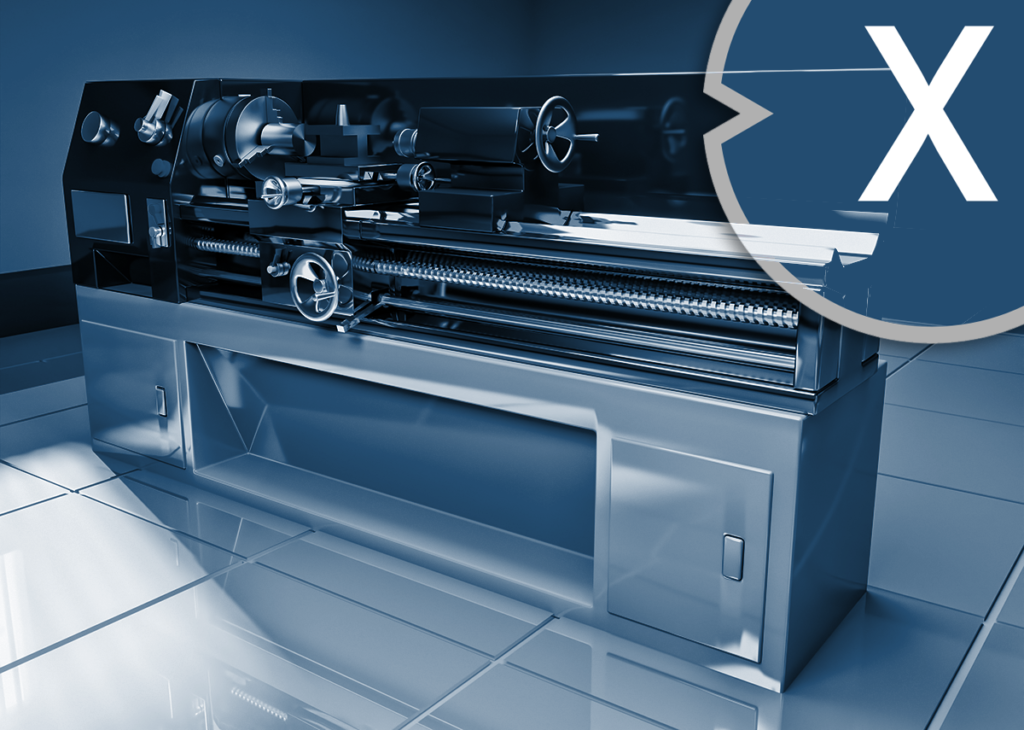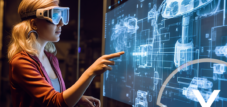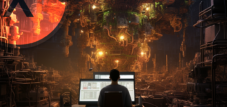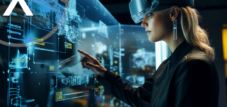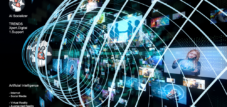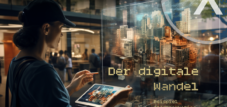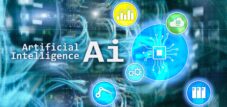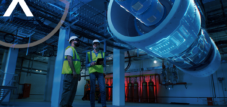Artificial Intelligence: The integration of AI into the business strategy of companies with a view to building an Industrial Metaverse
Language selection 📢
Published on: December 16, 2023 / update from: April 9, 2024 - Author: Konrad Wolfenstein
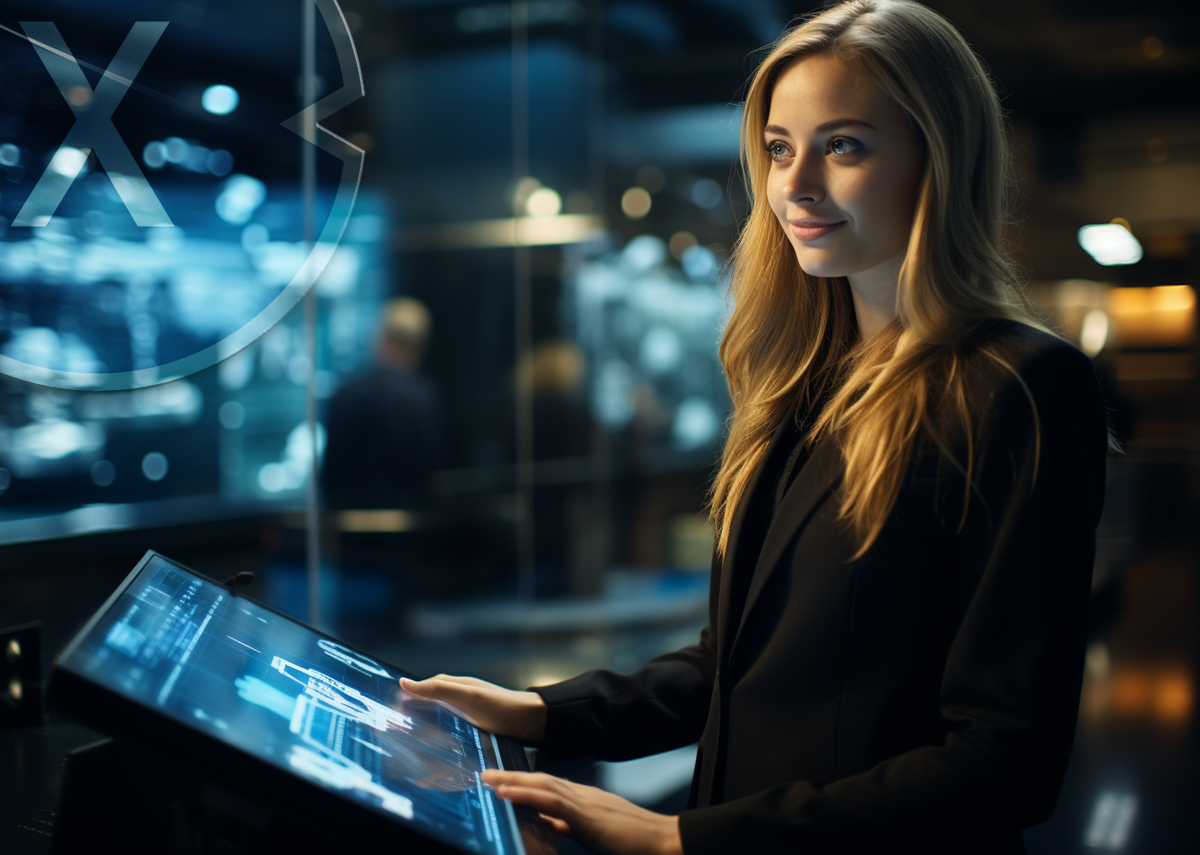
The integration of AI into the business strategy of companies in the Industrial Metaverse - Image: Xpert.Digital - AI & XR 3D Rendering Machine (art photo/AI)
📊 AI technologies and business strategies: their role in simulation
🤖 Integrating artificial intelligence (AI) into companies' business strategies is a crucial topic that is gaining importance in today's technologically advanced economic world. AI is becoming increasingly relevant, especially when building an industrial metaverse, a virtual environment in which physical and digital processes merge. This metaverse is designed to revolutionize industrial systems and optimize production processes by providing seamless integration of data collection, analysis and machine learning. Below we will take a closer look at the role of AI in the context of companies' business strategies in building this Industrial Metaverse.
📊 First, it is important to understand that AI technologies lay the foundation for many aspects of the Industrial Metaverse. AI offers the opportunity to process huge amounts of data (big data), gain valuable insights and improve decision-making processes based on this. In the Industrial Metaverse, this is made possible through realistic simulations and interactive models that depict real production environments and scenarios. Companies are therefore able to simulate, analyze and optimize various processes and procedures without using physical resources or risking real production downtimes.
🌐 The concept of the Industrial Metaverse also creates a new dimension for collaboration. Teams from different geographical locations can meet, communicate and collaborate in real time in a virtual environment. Designs, product prototypes and assembly lines can be represented in a 3D virtual reality environment, significantly improving collaborative development and testing of products and processes.
👥 For companies that want to prepare for the future, integrating AI into their business strategy not only implies that they have to deal with new technologies, but also that they have to adapt their organizational structures and processes. Digital transformation requires a cultural shift with a focus on agile ways of working and lifelong learning for employees to keep up with the rapid development of technology.
🔐 A critical point in the design of the Industrial Metaverse is the question of data security and privacy. This is where AI comes into play by supporting advanced security protocols that ensure both the integrity and confidentiality of data. AI-driven security systems can detect patterns that indicate potential threats and take immediate action to maintain checks and balances.
📚 Education also plays an important role in preparing for the Industrial Metaverse. The combination of AI and education opens up new ways to learn and master skills and develop people. Using AI-driven learning platforms and methods, individual curricula can be created that adapt to learners' strengths and weaknesses, making it easier to prepare for work in the metaverse.
🌱 Another essential component is environmental awareness and sustainable development. AI helps to maximize the efficiency of production systems and minimize resource consumption and waste production. This is both ecologically beneficial and economically sensible. The Industrial Metaverse allows sustainable practices to be promoted through simulation and optimization without relying on costly physical experiments.
🤔 However, the flood of innovation and data that the Industrial Metaverse brings is not without its challenges. One of these is dealing with ethical issues that arise through the use of AI. The question arises as to how AI-generated results are handled and who is responsible for them. Open and transparent governance models and ethical guidelines are crucial to instill trust in the technology and the companies that use it.
🏢 For the individual use of AI in the company context, tailor -made solutions will be necessary. It is unlikely that a “one-size fits-all” approach will work. Every company will have to develop a strategy adapted to its specific needs and goals. Innovations in the AI area are also constantly in the flow, which means that business strategies have to be flexible and adaptive to integrate new technologies as soon as they are available.
👩💼 Leaders must have a sound understanding of the strengths, limitations and application potential of AI in order to make strategic decisions. Training and hiring talent that is skilled in both AI and the company's specific industry will become increasingly important. Investing in the ongoing training of existing employees to give them the skills needed to work in the Industrial Metaverse is also critical.
🚀 Building an industrial metaverse offers a variety of opportunities and challenges for companies. Integrating AI into business strategies is a complex undertaking that requires careful planning, in-depth knowledge and an open corporate culture that promotes innovation. Companies that accept these challenges and integrate AI into their business processes will achieve competitive advantages by operating more efficiently, flexibly and adaptably to the needs of the market. Rather than a future project, the Industrial Metaverse is an indicator of the current state of technological evolution that needs to be understood, designed and used.
📣 Similar topics
- 🤖 Artificial Intelligence and the Industrial Metaverse: A Revolutionary Connection
- 📊 Big Data and AI: Key to the Industrial Metaverse
- 🌐 Virtual collaboration in the Industrial Metaverse: A new dimension of teamwork
- 💻 Digital Transformation and AI: Adapting Enterprises for the Industrial Metaverse
- 🔒 Data security and privacy in the Industrial Metaverse: The role of AI
- 🎓 AI-Driven Education Platforms: The Future of Learning in the Industrial Metaverse
- ♻️ Sustainable development in the Industrial Metaverse: Resource efficiency thanks to AI
- 👥 Ethics and Governance in the Industrial Metaverse: Responsible Use of AI
- 🎯 Individual AI strategies in the Industrial Metaverse: A tailor-made solution
- 👩💼 Executives and AI: The strategic use of artificial intelligence in the industrial metaverse
#️⃣ Hashtags: ArtificialIntelligence #IndustrialMetaverse #AIandEducation #DataSecurity #Sustainability
🤖📊🔍 The report 'Artificial Intelligence - Perspective of the German Economy' offers you a diverse thematic overview
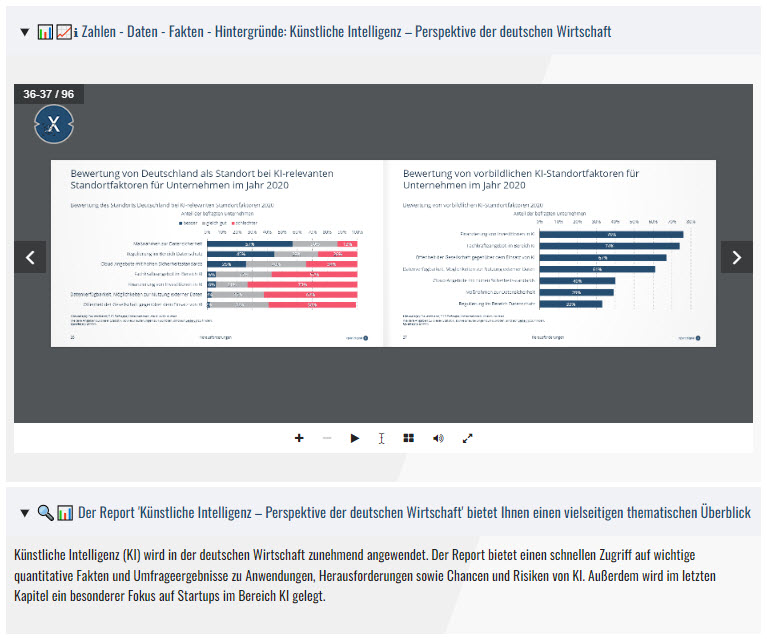
Numbers, data, facts and background: Artificial intelligence – perspective of the German economy – Image: Xpert.Digital
We currently no longer offer our newer PDFs for download. These are only available upon direct request.
However, the PDF “Artificial Intelligence - Perspective of the German Economy” (96 pages) can be found in our
📜🗺️ Infotainment portal 🌟 (e.xpert.digital)
under
https://xpert.digital/x/ai-economy
with the password: xki
view.
🌐 Big Data and Artificial Intelligence (AI) in the Industrial Metaverse 🌐
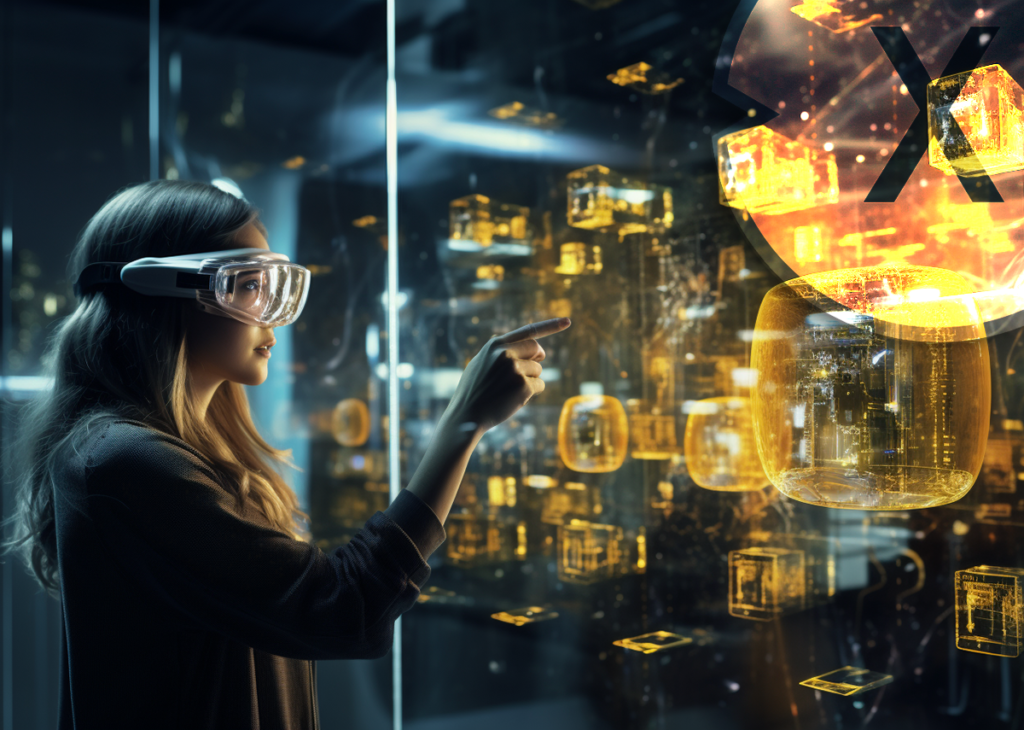
Big Data and Artificial Intelligence (AI) in the Industrial Metaverse – Image: Xpert.Digital – AI & XR-3D Rendering Machine (Kunstfoto/AI)
The Industrial Metaverse has experienced rapid development in recent years and opens up numerous opportunities in various industries. One application that is becoming increasingly important is the Industrial Metaverse. The Industrial Metaverse is a virtual space where physical and virtual worlds merge to increase efficiency in industry.
💡 Data-driven efficiency
Powered by big data and AI, the Industrial Metaverse enables companies to analyze complex data and derive valuable insights from it. By integrating sensors into machines and systems, enormous amounts of data can be collected. This data is then analyzed in real time and processed using AI algorithms. For example, this allows companies to monitor the health of their machines, predict potential failures, and schedule maintenance to minimize unplanned downtime.
🌐 Virtual simulations
Another advantage of the Industrial Metaverse is the ability to run virtual simulations. By combining real-world data with virtual models, companies can develop new products and processes and test them in advance in a virtual environment. This not only saves time and money, but also minimizes the risk of errors and accidents.
🌍 The Internet of Things (IoT)
The increasing spread of connected devices, the so-called Internet of Things (IoT), is also contributing to the emergence of the Industrial Metaverse. By integrating IoT devices into production facilities, companies can monitor and control the entire manufacturing process. For example, sensors can measure temperature, pressure or energy consumption and transmit the data to a central platform in real time. In this way, companies can optimize their production, identify bottlenecks and create more efficient processes.
🚚 Logistics optimization
In addition, the Industrial Metaverse can also be of great use in the logistics industry. By analyzing data from various sources such as GPS trackers, traffic data and weather forecasts, the transport of goods can be optimized. Companies can adjust routes in real time to avoid congestion and reduce delivery times. They can also monitor the condition of goods and ensure they are transported in the right conditions to avoid damage.
🚗 Automotive industry
An example of an application for the Industrial Metaverse is the automotive industry. By integrating big data and AI, automobile manufacturers can make their production more efficient. Sensors in the production facilities record data such as machine running times and production utilization. This information is analyzed in real time and evaluated using AI algorithms. Based on this analysis, manufacturers can identify bottlenecks, optimize production and increase efficiency. Additionally, virtual simulations can be used to develop and test new vehicle designs before they go into production.
⚡ Energy industry
The energy industry can also benefit from the Industrial Metaverse. By analyzing real-time data from power grids, energy companies can identify bottlenecks and operate their networks more efficiently. Additionally, they can schedule preventive maintenance to minimize outages and improve power reliability. By using virtual simulations, companies can also develop renewable energy systems and test their efficiency in advance.
🔐 Challenges and risks
With all of these groundbreaking possibilities, it is important to also consider the challenges and risks of the Industrial Metaverse. Protecting data and keeping systems secure is critical. Companies must ensure that their data is protected from unauthorized access and their systems are secured against cyberattacks. Data protection regulations must also be observed to ensure the lawful handling of personal data.
💡 Crucial key technologies
Big data and artificial intelligence are crucial key technologies for the industrial metaverse. They enable companies to collect real-world data, analyze it and use it in virtual environments. This allows processes to be optimized, new products to be developed and efficiency improvements to be achieved. The Industrial Metaverse therefore offers great potential for various industries and will become an important driving force for Industry 4.0. It is important that companies leverage these technologies to remain competitive and meet the challenges of an increasingly connected world.
📣 Similar topics
- 🛠️ The Industrial Metaverse: Big Data and AI for increasing efficiency in industry
- 💡 Big Data, AI and the Industrial Metaverse: The Future of Industry
- 🌐 The Industrial Metaverse: When virtual worlds meet real industry
- ⚙️ The Industrial Metaverse: How Big Data and AI are revolutionizing industry
- 🏭 The power of the Industrial Metaverse: Big Data and AI in industry
- 🖥️ The Industrial Metaverse: The virtual space for increasing industrial efficiency
- 🌍 The Industrial Metaverse: The fusion of virtual and physical worlds in industry
- 🚀 The Industrial Metaverse: New opportunities for industry thanks to big data and AI
- 🏢 The Industrial Metaverse: Insight into the future of industrial processes
- 🌟 The Industrial Metaverse: From data analysis to virtual simulations in industry
#️⃣ Hashtags: #IndustrialMetaverse #BigDataandKI #EfficiencyIncrease #Industrie40 #VirtualSimulation
🎯🎯🎯 Benefit from Xpert.Digital's extensive, fivefold expertise in a comprehensive service package | R&D, XR, PR & SEM

AI & XR 3D Rendering Machine: Fivefold expertise from Xpert.Digital in a comprehensive service package, R&D XR, PR & SEM - Image: Xpert.Digital
Xpert.Digital has in-depth knowledge of various industries. This allows us to develop tailor-made strategies that are tailored precisely to the requirements and challenges of your specific market segment. By continually analyzing market trends and following industry developments, we can act with foresight and offer innovative solutions. Through the combination of experience and knowledge, we generate added value and give our customers a decisive competitive advantage.
More about it here:
We are there for you - advice - planning - implementation - project management
☑️ Smart City & Factory: Industry expert for energetic 5G buildings and halls as well as advice and installation of solar systems
☑️ Xpert.Plus - logistics consulting and logistics optimization
☑️ Industry expert, here with his own Xpert.Digital Industry Hub with over 2,500 specialist articles
I would be happy to serve as your personal advisor.
You can contact me by filling out the contact form below or simply call me on +49 89 89 674 804 (Munich) .
I'm looking forward to our joint project.
Xpert.Digital - Konrad Wolfenstein
Xpert.Digital is a hub for industry with a focus on digitalization, mechanical engineering, logistics/intralogistics and photovoltaics.
With our 360° business development solution, we support well-known companies from new business to after sales.
Market intelligence, smarketing, marketing automation, content development, PR, mail campaigns, personalized social media and lead nurturing are part of our digital tools.
You can find out more at: www.xpert.digital - www.xpert.solar - www.xpert.plus
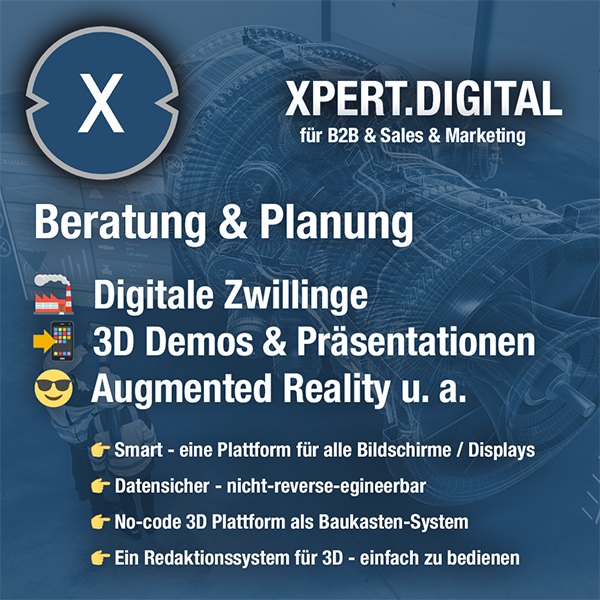
Industrial & B2B Business Metaverse: Reduce costs with XR technology for photorealistic product images (XR 3D rendering machine)
XR technology offers a superior solution for creating photorealistic images and allows companies to free themselves from the expensive fees of external media agencies. It is common knowledge that media agencies charge high costs to create such images as it requires expertise, special software and collaboration with various experts.
More about it here:



